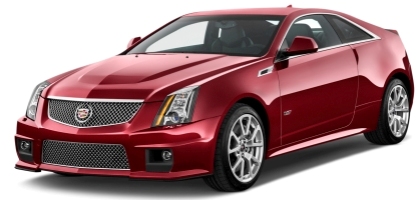May 30, 2015 | Last week, I came across a GM Authority opinion piece that had been posted three weeks before I posted my 'Reinvention' piece. Unlike the Consumer Reports article that instructed owners about "silencing the horns" but ignored the concept of silencing noise at its source, the GM Authority post addressed the source directly.
I found myself fundamentally agreeing with GM Authority, but disagreed on a few details. Ultimately, I think that Cadillac (like every GM brand) is capable of getting behind a change in acoustic alert without having to be persuaded with the prospect of creating a branded sound. I also agree that attention to small details can make a big impact, and that a subtler acoustic alert is a wise investment that needn't involve reinventing the wheel. Here is where I disagree:
The concept
My "id" agrees with the wish to see the CTS among the first to eliminate horn use with accoustic alerts. I think the CTS is such a gorgeous car. I would be thrilled to see one of my favorite cars lead GM away from honking lock alert laggards into the sound-conscious future where this brand and this automaker belong.
But the impact would be minor. In 2014, Cadillac sales were less than 6% of GM sales in the US and Canada. Do we want fewer than 6% of new cars to improve their sonic footprint while the remaining 94% (of only one corporation's brands) honk every time one locks a door, starts a car remotely, or steps out to get the mail?
If starting with Cadillac as the first step toward universal transition, that's a different story - it's more or less standard practice, and it's how Toyota, Honda, Nissan, and Hyundai transitioned toward the electronic tone. I've often wished that any horn using automaker would offer to "upgrade" to a softer acoustic alert whenever any car has work done as part of a recall, as a kind of pilot project. But ultimately, why bother? Eco conscious automakers don't need to take years to implement simple but clearly beneficial changes.
A tiered system of acoustic alert is incompatible with social responsibility
I've based arguments for quieter alerts on the exact same premise GM Authority uses, which is that a luxury vehicle should be quiet in every situation. And I'm not disagreeing. Any car that is positioned as a luxury car should automatically opt for a quieter sound (or no sound) in order to be in line with the meaning of "luxury." The same goes for any car that is marketed on the basis of being environmentally friendly. This argument appeals to decision makers who care about luxury, or who care about a product being environmentally friendly, but does not mean that I think it's okay for non-luxury or non-eco-friendly cars to keep using horns for alerts.
The two-tier acoustic lock alert concept is embarrassingly irresponsible. I'm certain no offense was intended, and I understand that many very decent people allowed this to happen simply because environmental noise is not systematically recognized in US culture. With that said, it is not difficult to understand that the concept that affluent people should have quieter products while the working and middle classes should be stuck with noisier products is uncool on so many levels, far too numerous to list here.
Branded acoustic alerts
Design of any sound that stands to be heard in a common space or enter homes should forsake "fun" and focus on responsibility. For that reason, my solution would be to use the de facto standard - the sound used by Toyota and some other corporations - and not bother creating a unique proprietary sound. If you want to be seriously innovative, do so in another way - a more truly daring way. First, transition every car to the de facto standard in the course of one year. Next, offer a "pilot project" where some cars offer haptic or visual telematic feedback in place of acoustic feedback (with thanks to commenter arach for mentioning this in the GM Authority post). Find out how users adjust, and if enough users like the silent options, make the technology a configurable option.
Regarding Audi's "chirp" being a model of success, I disagree, and can't find stronger support for my argument than the ad itself. Awakening a sleeper, distracting a bird, and interrupting someone's reading are not things to be proud of. I think the Audi sound is like someone took "nails on a chalkboard" and converted it into an alert. Individuals process sounds differently, but like the fictional sleeper and reader, I can't tune out the Audi alert. A "chirp" should be something that an owner recognizes but everyone else in earshot can easily ignore.
|  |
- "OM shanti shanti shanti"
|
Ultimately the concept of Cadillac using its autonomy to distinguish itself from GM and other horn-using brands by using a subtler sound would more likely be a means of aligning with environmental goals rather than luxury values. Like affluent Cadillac owners we see in vintage ads, luxury as the main goal is part of our past. Today's luxury brands are competing for recognition of environmental excellence on par with that all other green vehicles. 1 2
(Close browser to return to Green Car Integrity)